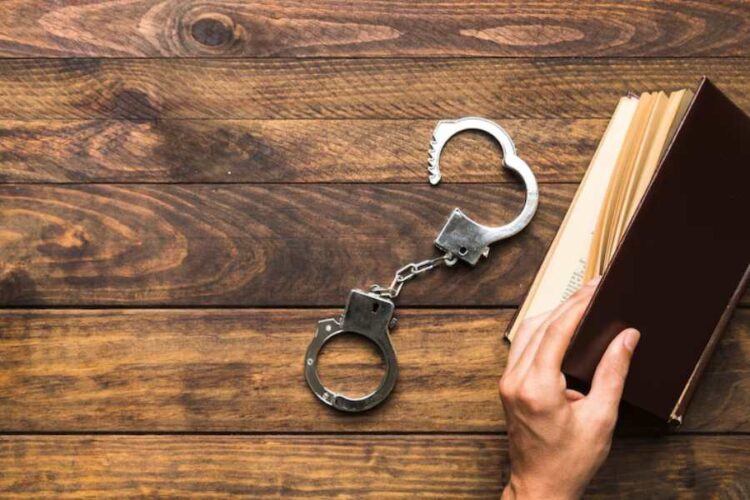When you’re charged or arrested for DWI, it can be quite overwhelming and make you feel like you’re thrown off balance. Knowing your rights and how to assert them, however, can spell a huge difference, especially in the outcome of your case.
Here are some insights that could guide and help you work through this challenging situation or phase of your life.
Stay Calm and Composed
How you look and act during a DWI stop or apprehension can influence the proceedings and could lead authorities to arrest you without a warrant under the plain view doctrine. While there may be many ways of DWI charges, just stay calm when the authorities are in the process, avoid sudden movements, remain respectful, and comply with basic requests like providing your identification.
When the police notice any aggressive or erratic behavior, it could worsen your situation and give the arresting officer “probable cause” to arrest you.
Exercise Your Right to Remain Silent
When you’re faced with the “might” of the authorities or enforcers, the law is on your side to afford you some protection, like that cloak of protection under the Miranda warning. You’re given the right to remain silent, avoid incriminating yourself, and avert the chances of jeopardizing your cause. Just politely refrain from answering questions about your activities, alcohol consumption, or any other details, and talk to your lawyer before doing so.
Request Legal Representation Immediately
Upon arrest, assert your right to an attorney right away, or if you don’t have or you can’t afford an attorney’s services, the state is obliged to provide a competent one for you. So, just clearly state, “I would like to speak to my attorney,” and don’t answer further questions until your lawyer arrives or is brought in. This can help you make sure that your rights are protected throughout the interrogation process.
Be Cautious with Field Sobriety and Chemical Tests
While laws may vary by state or jurisdiction, you generally have the right to refuse a field sobriety test, especially when you somehow detect a shady intent to implicate you. However, when you become quite unreasonable, your refusal may lead to automatic penalties, like the suspension of your license. That’s why, if you choose to comply, be extra careful, as the results can be subjective and may be used against you in court.
Avoid Self-Incriminating Statements
You do need to be careful when responding to authorities, because even seemingly innocuous statements can be detrimental and could land you in jail or face you with a huge fine. So, avoid phrases like “I only had a couple of drinks” or “I’m not that drunk,” which could evidence your admission. They can most likely be used as evidence of your admission or impairment.
That’s why, just stick to asserting your rights and avoid elaborating or giving explanations, even if your statement may seem harmless.
Document Your Encounter
As soon as possible, write down everything you remember about the stop or checkpoint:
● Time and location of the stop
● The flagging officer’s name and badge number
● What was said and done during the stop
● Conditions of the road and weather
These bits of information can be quite material and invaluable for your defense later.
Seek Experienced Legal Counsel
When the law acquires jurisdiction over your person because you’re charged, engaging a knowledgeable DWI attorney is particularly vital so you’ll understand the nature of your present standing in the field of law. Your lawyer can easily assess the specifics of your charges, can challenge any procedural errors (like non-recitation of Miranda warning when you’re handcuffed), and work towards the best possible outcome.
In Texas, for instance, having a local attorney familiar with the courts and procedures can be quite advantageous. For specialized and most attentive defense for DWI charges in League City, consulting a reputable law firm may just be your effective way to help thresh out the intricacies of the law surrounding your legal hurdle. This charge may seem quite finite, but with your rights and legal capacities, along with the able help of your lawyers, you might just be able to go past your challenges.
Understand the Implications of Refusing Tests
While this may seem incriminating, refusing a breathalyzer or blood test, however, can have immediate consequences, like license suspension. It’s a given that these tests are not infallible, and although their administration follows strict protocols, you need your attorney to help determine if your rights were violated during testing.
Avoid Discussing Your Case
Just as the officer’s warning that “anything you say may be used against you in court,” Avoid any discussion or posting comments about your arrest or case details with anyone other than your legal team. More often than not, conversations (no matter how inconsequential) with friends, family, or on social media about your case can be used as evidence against you and can incriminate you. So, maintain confidentiality to protect your defense strategies.
Be Aware of the Consequences
It may just seem a slip, like being at the wrong place at the wrong time, but a DWI conviction can lead you to pay severe penalties, including fines, license suspension, and even jail time in worst cases. According to a 2025 report, there were approximately 865,000 DUI (driving under the influence or intoxicated driving) arrests in the U.S., with 27% involving recidivists—individuals previously convicted of impaired driving offenses.
In sum, understanding the reality of your predicament can help you competently choose and take the most needed steps immediately after your arrest. And, with these guidelines as you walk through, you can surely protect your rights and be quite hopeful for a more favorable outcome in your DWI case.










